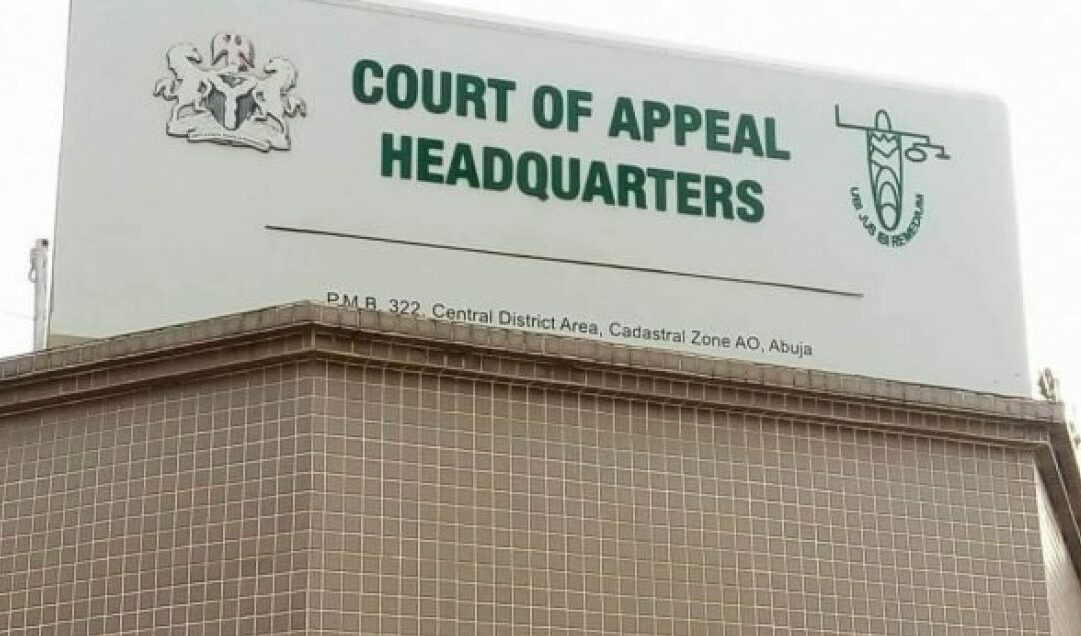Introduction
Banks ensure the wheel of commercial activities continue to roll through the provision of credit facilities to business entities. Commercial lending also offers investment benefits to banks which include increased revenue and financial stability. As businesses grow and the banks become more stable, stronger bank-customer relationships are built.
One of the biggest threats to this bank-customer relationship flows from non-repayment of loans which is capable of exposing the banks to risks. Usually, where there is a breach of the covenant to repay, the affected bank (as creditor) would take legal steps towards debt recovery.
But that is not where the real gist is. What we find in some cases is that debtors often dispute the sum being claimed by the banks on the basis that the figures are inflated and coated with excessive and unlawful charges recorded on the debtors’ accounts. Acknowledging the possibilities, banks are often open to what is commonly known as account reconciliation exercise where it is hoped that such issues would be amicably resolved.
Undoubtedly, such an allegation of unlawful charges is one issue that taints the integrity of some banks. This was the development in an interesting case involving Union Bank (“the Bank”) and Origin Oil and Gas Ltd. (“the Company” or “Origin Oil”).* The case was instituted by the Company against the Bank at the Federal High Court, Lagos Division, where the Learned Trial Judge, Hon. Justice A. Lewis-Allagoa, made some impeccable findings, and relying on compelling legal reasoning, upheld the claims of the Company against the Bank. But, in a controversial Judgment, the Court of Appeal, Lagos Division, overturned that decision. The Judgment, respectfully, raises fundamental concerns about judicial appreciation of expert evidence, complex banking transactions, and the principles of the law of evidence applicable to documentary exhibits.
Background: The Dispute over Excess Charges
The case originated from the Federal High Court, Lagos. The Respondents (Origin Oil) had obtained an Import Finance Facility from Union Bank and later discovered what it described as excessive and arbitrary charges on its account. The Respondent had by several emails requested clarification and removal of those excessive charges but the Bank remained largely evasive. Believing these charges violated Central Bank of Nigeria (CBN) guidelines, the Company commissioned a forensic audit.
The resulting report, presented in Court by a Forensic Auditor and Chartered Accountant (PW2—Fola), highlighted unauthorized debits. The Forensic Auditor gave oral evidence and was subjected to cross-examination. His qualifications and findings were not discredited.
Union Bank, in response, requested an independent audit by the CBN. The application for the independent audit was granted by the Court. However, the resulting CBN report was produced in Court upon a subpoena duces tecum and tendered from the bar without the testimony of any CBN official. In other words, the CBN report was not subjected to the test of cross-examination on the findings, conclusion and qualifications of its authors.
By a well-considered Judgment, the trial Court ruled in favour of Origin Oil, relying on the tested evidence of the forensic auditor. But on appeal, the Court of Appeal overturned this decision rejecting the Forensic Auditor’s testimony and leaning instead towards the untested CBN report.
Critical Findings and Holding by the Trial Court
In deciding the case, the trial Court made some critical findings which formed the basis of its decision. These were as follows:
1.The trial Court ran through the evidence and exhibits before the Court and found that there was nothing in those exhibits suggesting the restructuring or renewal of the $2 Million facility as claimed by the Bank.
2. The trial Court found that the Bank was liable for applying unlawful and excessive charges and manipulations on the Company’s accounts. According to the trial Court, “the Defendant [the Bank] did not only admit the manipulations in its Statement of Defence and Final Address though they termed those manipulations to be occasional wrong debiting.” (p. 51) In making this finding, the trial Court heavily relied on the report of the Forensic Auditor.
3. The trial Court discountenanced the CBN report on the basis that the report was tendered in Court by an official of the CBN based on subpoena duces tecum, as the official did not give any oral evidence and was not cross-examined on the report. The CBN official did not claim to be an expert nor did he claim to be the author of the report. Consequently, the trial Court held that the CBN report had no weight and no probative value, and that the Court could not rely on it.
4. The trial Court also found that while the Company called an expert witness in the person of the Forensic Auditor, the Bank failed to call its own expert witness. Rather, the Bank relied on its staff (DW1 and DW2) who lacked experience in matters of Letters of Credit and issues relating to core banking. DW2 (Barbara) who was superior to DW1 (Mercy) worked in the Revenue Assurance Department of the Bank—more like a customer complaints unit. Regardless, the Bank’s witnesses claimed to have reviewed the Letters of Credit that led to the subject matter of the case. The Court held that the Bank’s staff called as witnesses did not qualify as experts and that the evidence of the Company’s expert—the Forensic Auditor—remained unchallenged. Also, the Bank’s witnesses relied on the CBN report in making their Statements on Oath being their oral evidence-in-chief.
5. The CBN report formed the main basis for the Bank’s Counterclaim.
In its Judgment delivered on 4 July 2024, the trial Court granted the claims of the Company while dismissing the Bank’s Counterclaim.
Appeal to the Court of Appeal**
Aggrieved by the decision of the trial Court, the Bank appealed to the Court of Appeal where it challenged the trial Court’s reliance on the report of the Company’s hired Forensic Auditor on the ground that the Forensic Auditor was hired for a fee, without an order of Court and without recourse to the Bank. Also, the Bank believed it was needless for the Company to hire the Forensic Auditor in view of the intervention of the CBN as a referee.
The Bank argued that there was no evidence tendered to support the oral claims by the Forensic Auditor regarding his qualifications as an expert.
More so, the Bank contended that the trial Court was wrong for discountenancing the CBN report and for holding that there was no evidence of the existence of the $2 Million facility which ultimately led to a dismissal of its Counterclaim and in granting the claims of the Company.
In its Judgment delivered on 10 January 2025, the Court of Appeal upheld the arguments of the Bank. It reversed the decision of the trial Court and granted the Bank’s Counterclaim.
Fatal Errors: What the Court of Appeal Missed
An examination of the Judgment of the Court of Appeal reveals four critical missteps/errors:
1. Misapprehension of the $2 Million Facility
The Court of Appeal dismissed the Company’s argument that the facility was never disbursed (or was instantly repaid), as illogical. But this position aligns with standard banking practices, where inter-account transfers and internal reconciliations are routine. The Court of Appeal failed to appreciate that the Company’s dollar account showed no such debit, nor was there any restructuring document. The Court’s hasty rejection of this possibility displayed a superficial grasp of commercial banking mechanisms.
2. Unfair Discrediting of Expert Testimony
The Court of Appeal faulted the trial Court for relying on the Forensic Auditor’s report, arguing that his qualifications were not established. This was notwithstanding the finding by the trial Court that the Company’s expert witness was a Forensic Auditor and a Chartered Accountant. This is a misapplication of the law. The position remains that once a witness is presented as an expert, and his expertise is stated (for example a Chartered Accountant as in this case), it is for the opposing party to challenge those credentials during cross-examination. As held in the case of Heritage Bank Ltd v. B.U Chuma & Sons Ltd & Anor (2024) LPELR- 61937(CA), it is the duty of the opposing counsel in appropriate cases to cross-examine the expert witness effectively in order to raise doubts as to the witness competence or expertise. Where counsel fails to do so, the court would be at liberty to treat the witness as an expert and rely on the testimony of the expert witness.
Moreover, in Magaji v. Lado & Ors (2023) LPELR-60463(SC), the Supreme Court cautioned against judicial incursion into adversarial proceedings. The Court of Appeal’s rejection of the Forensic Auditor’s credentials and status as an expert, on its own accord, and without any prompting or challenge from the Bank, offends this principle.
3. Mixing up the Bank’s Witness and the CBN Official
The Court of Appeal erroneously attributed the tendering of the CBN report to the Union Bank staff and witness named Barbara Peters, stating she had been subpoenaed. In truth, the report was produced by a CBN official who did not testify and was not cross-examined. This factual error undercuts the credibility of the Court of Appeal’s Judgment and calls its reasoning into question.
4. Improper Reliance on Untested Documentary Evidence
The Bank’s witnesses admitted that their Statements on Oath were based on the CBN report but they also claimed that their evidence was based on a reconstruction of the Company’s accounts. This naturally sends the wrong signal and raises some questions on the integrity of the report and the substance of their evidence.
Beyond this, the trial Court had made a critical observation which the Court of Appeal appeared to have neglected to the effect that the CBN official who tendered the CBN report did not give any oral evidence and was never cross-examined on the report. Subpoenaing a witness solely for the purpose of tendering documentary evidence is allowed in law. But given the nature of the instant case and the relevance of the report, it was not ideal for the Court to place much weight on such an untested report dumped on the Court especially where the Company had another report from its own hired expert—the Forensic Auditor.
Furthermore, notwithstanding the heat of dispute and without any evidence or compelling reason, the Court of Appeal gave undue regard to the CBN report. According to the Court:
“…The fact that it [the CBN report] emanated from a Public Office, in the proper admissible format and in compliance with the Order of Court renders it admissible with the appropriate probative value attached to it.”
Also, the Court of Appeal described the CBN as “an impartial, court-appointed arbiter” as far as the instant case was concerned.
Clearly, the Court of Appeal was swayed by the position of the CBN as the regulator of the financial sector in ascribing so much validity to the CBN report as if the report must be automatically binding on the Court for the singular reason that it emanated from the CBN without more. That cannot validly be!
In Etim & Anor v Akpan & Ors (2019) LPELR-48681(CA), it was held that documents must be verified by oral evidence or cross-examination in order to have any probative value. Similarly, in ACN v. Lamido & Ors (2012) LPELR-7825(SC) it was held that documentary evidence, especially from third-party sources, must be authenticated through the proper evidential process. The Court of Appeal’s reliance on the untested CBN report undermines these sacrosanct evidentiary principles.
5. Failure to acknowledge the import of the Bank’s admission of imprudence
It is important to note that initially, the Bank had contended that there were no unlawful entries in the Company’s accounts. But the CBN report captured unlawful entries and excessive charges which the Bank eventually admitted. At the trial Court, the Bank made an unsuccessful attempt to dilute the impact of this admission by claiming that the unlawful entries were mere “occasional wrong debiting”.
The inevitable implication of this is that the Bank was imprudent. The admission of unlawful entries and excessive charges gives more validity to the report of the independent expert—Forensic Auditor—called by the Company which also highlighted those excessive charges and applied penal provisions of the CBN Guidelines on the effect of the charges.
6. There was no justifiable basis for granting the Bank’s Claims
With respect, how the Court of Appeal came to the conclusion that the Bank’s Counterclaim succeeded merely because it held that the Company’s claims failed is unimaginable. In less than a page, the Court of Appeal “considered” the Bank’s Counterclaim and upheld all the claims relying wholly on the CBN report.
Indeed, the Counterclaim, having been built on the untested CBN report, was bound to fail in the absence of any other compelling evidence, and in view of the forensic report of the Company’s expert witness.
A Judgment that Undermines Judicial Clarity
The errors in the appellate decision go beyond technicalities. They strike at the heart of justice delivery in commercial disputes. The trial Court took pains to distinguish between credible and speculative evidence. It rewarded rigour and punished laxity. With respect, the Court of Appeal did the opposite.
This case underscores the judiciary’s responsibility to understand commercial realities, respect the evidentiary process, and avoid conflating legal roles and standards. When courts undermine expert evidence, elevate untested documents, and misstate facts, they risk shaking public confidence in adjudication.
Conclusion
In sum, I believe the errors I identified in the Court of Appeal’s Judgment are compelling. More was expected from the Court of Appeal in this case. In my opinion, an appeal by the Company to the Supreme Court may likely succeed.
Until then, Union Bank v. Origin Oil & Gas Ltd stands as a cautionary tale; a case where judicial error did not merely miss the fine print, it missed the point entirely.
* SUIT NO. FHC/L/CS/1431/2016 – Origin Oil and Gas Ltd & Ors v. Union Bank
**APEAL NO. CA/LAG/CV/625/2024 – Union Bank v. Origin Oil and Gas Ltd & Ors














